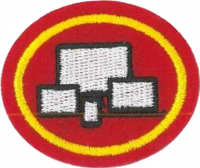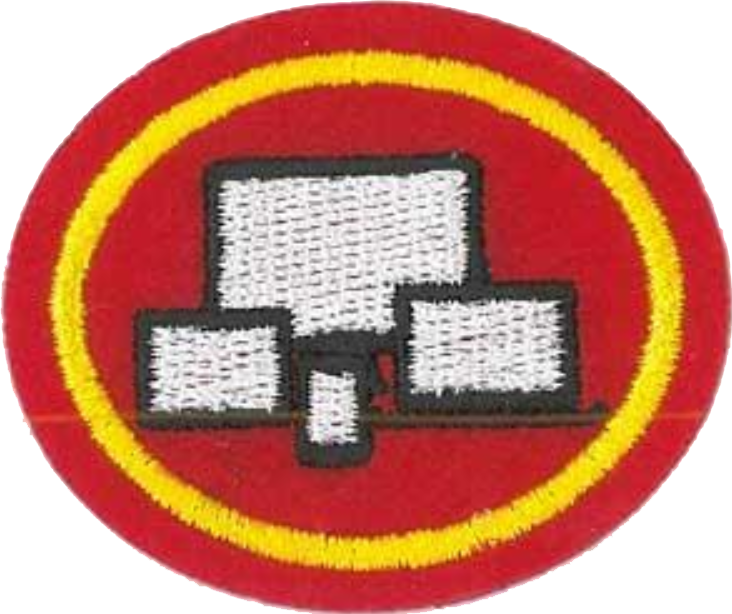Difference between revisions of "AY Honors/Computers and Mobile Devices/Requirements/en"
(Updating to match new version of source page) |
(Updating to match new version of source page) |
||
| Line 138: | Line 138: | ||
<noinclude></noinclude><section end=req5avi /></b> | <noinclude></noinclude><section end=req5avi /></b> | ||
| − | :<b>b. <section begin= | + | :<b>b. <section begin=req5b /><noinclude></noinclude>Determine the following on a mobile device (tablet or smartphone): |
<noinclude></noinclude><section end=req5b /></b> | <noinclude></noinclude><section end=req5b /></b> | ||
Revision as of 21:31, 26 July 2021
Skill Level
1
Year
2021
Version
04.02.2026
Approval authority
North American Division
1. Discover the following information: What kinds of computers (both laptops and desktops) and/or mobile devices (phones, tablets) does your community use.
2. Describe the function and point out at least 10 of the following components of a computer (either desktop or laptop). Some parts may require disassembling an old desktop case or laptop for identification.
- a. Case/Chassis
- b. Monitor
- c. Keyboard
- d. Mouse/Trackpad
- e. CPU
- f. Memory/RAM
- g. Motherboard
- h. Hard drive/Internal drive
- i. USB port/HDMI port/Equivalent data port
- j. Network Interface
- k. Power supply and power cable
- l. Speakers, headset, microphone
- m. Webcam
3. Describe the function and point out at least 10 of the following components of a mobile device (smartphone, tablet, etc.). Some parts may require disassembling an old tablet or phone for identification.
- a. Touch screen
- b. Circuit board
- c. Accelerometer
- d. GPS/Location locator
- e. Graphics processor
- f. Flash-based memory
- g. WiFi and/or cellular chip and antenna
- h. USB dock (if applicable)
- i. Storage expansion slot
- j. Battery
- k. Power supply
- l. App icons
- m. Status bar
- n. Volume buttons
- o. Speakers
- p. Camera lens (including selfie lens if applicable)
- q. Flash
- r. Audio inputs
- s. Microphone
- t. Home button or equivalent sensor
4. Describe the proper handling and storage techniques to keep computers, mobile devices, and their input/output devices safe.
5. Complete one of the following:
- a. Determine the following on a computer system:
- i. Operating System name and version
- ii. Processor speed
- iii. Storage capacity of non-volatile storage
- iv. Memory capacity (RAM)
- v. Internet strength/connectivity
- vi. Power source/Battery level
- b. Determine the following on a mobile device (tablet or smartphone):
- i. Operating System name and version
- ii. Storage capacity
- iii. Storage used
- iv. Remaining battery life
- v. Time usage of top five apps in the past week/month
6. In your family/community, discover the following and bring back a report.
- a. What kinds of computers (both laptops and desktops) do they use? What types of mobile devices?
- b. Which Operating Systems do their computers and mobile devices use?
7. Demonstrate the ability to identify and describe how at least five of the following external tools assist the user’s experience with their computer or mobile device (or equivalent connected mobile devices):
- a. Digital camera
- b. External drive/Flash drive
- c. External monitor
- d. Audio system
- e. Docking station
- f. Printer (inkjet, laser, 3D)
- g. Scanner
- h. Projector
- i. VR headset
- j. Smart environment device of your choice
- k. Other input or output devices your community uses
8. Do one of the following as you research the history of computers:
- a. Create a presentation (written, visual, poster, timeline) that includes at least 10 prominent events or persons that are significant to the development of the computer, both hardware and software.
- b. Research specific individuals from computer history and create a group visual, poster, or timeline report (Note: Your report should focus on the development of the personal computer and mobile devices, not the internet or other accessory functions).
- c. Visit a computer history exhibit at a museum. Create a slideshow or other report to demonstrate at least 10 things you learned during your visit.
9. Do the following:
- a. Spend one week charting the time you spend on computing devices. List what time was spent on schoolwork, gaming, movies/shows, religious activities, etc. and on which computing devices.
- b. Memorize 1 Corinthians 10:31 and Matthew 6:33.
- c. At the end of the week, evaluate with your counselor, family, or group leader how your management of computer time relates to the Bible’s instructions on stewardship of our time and resources (1 Corinthians 10:31; Matthew 6:33). Evaluate how these Bible texts could influence your tech-time and entertainment choices in coming weeks.
10. Interview an adult parent or other relative/community friend who uses a computer in their workplace. Ask them questions such as:
- a. When did you first start using computing devices for work? What type was it?
- b. What kind of computer do you use at work? At home? Why do you use those particular computer systems?
- c. Which computing activities that you do during a typical week are best done on a computer? On a mobile device? Evaluate reasons for each decision.
- d. What are things you do on mobile devices that you used to need a computer for?
- e. How do you balance your screen time with your “real world” interactions with people? What advice would you give about how to choose screen time?
- f. What Bible counsel or stories do you try to remember when balancing your screen time and entertainment choices?
11. Explain how computers and mobile devices make it easier to spread "the Advent Message to all the world in my generation."


